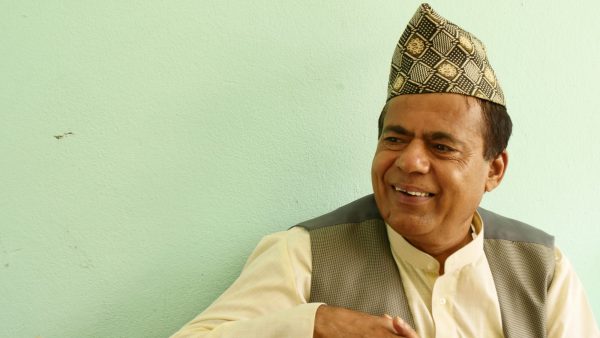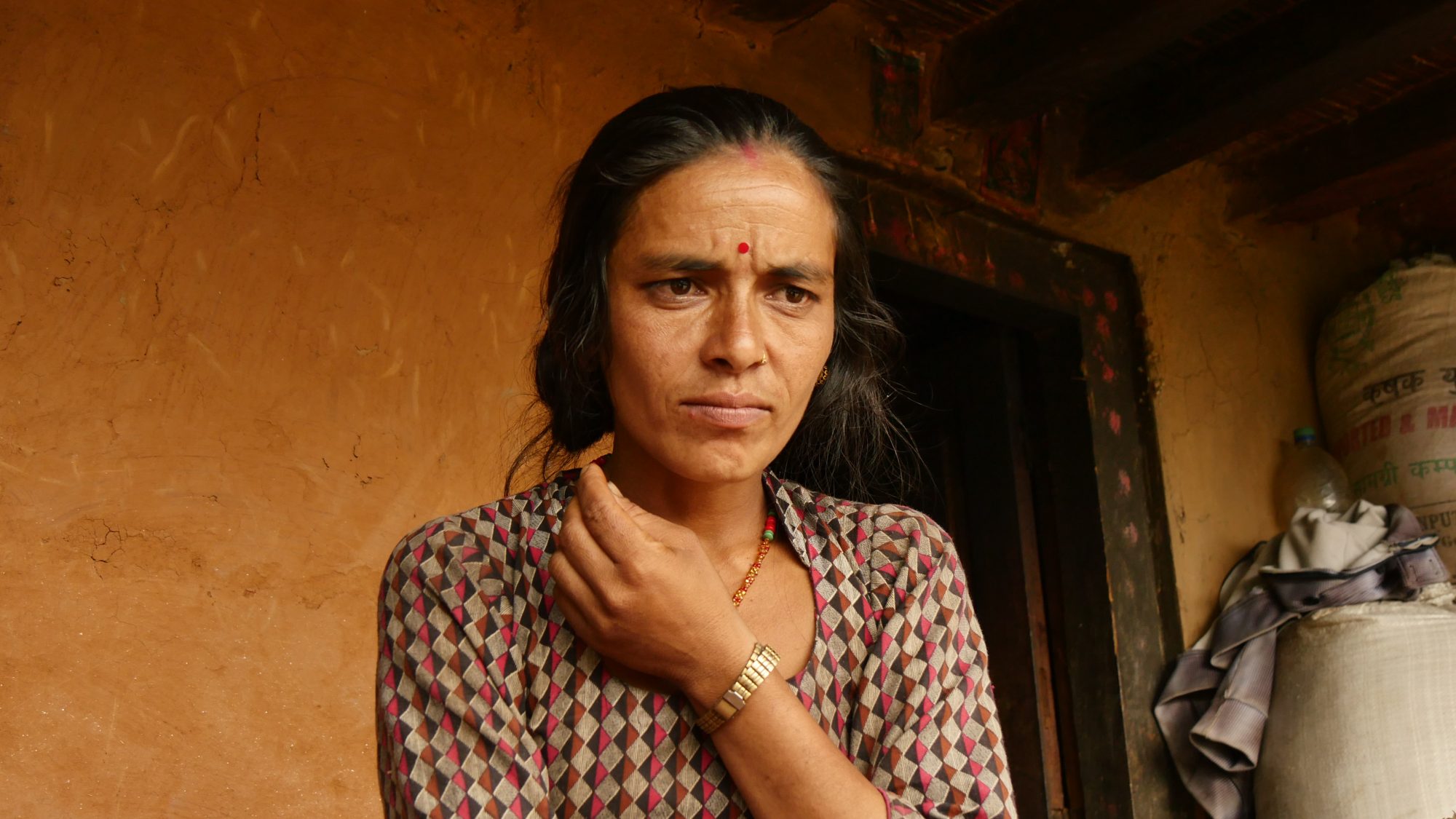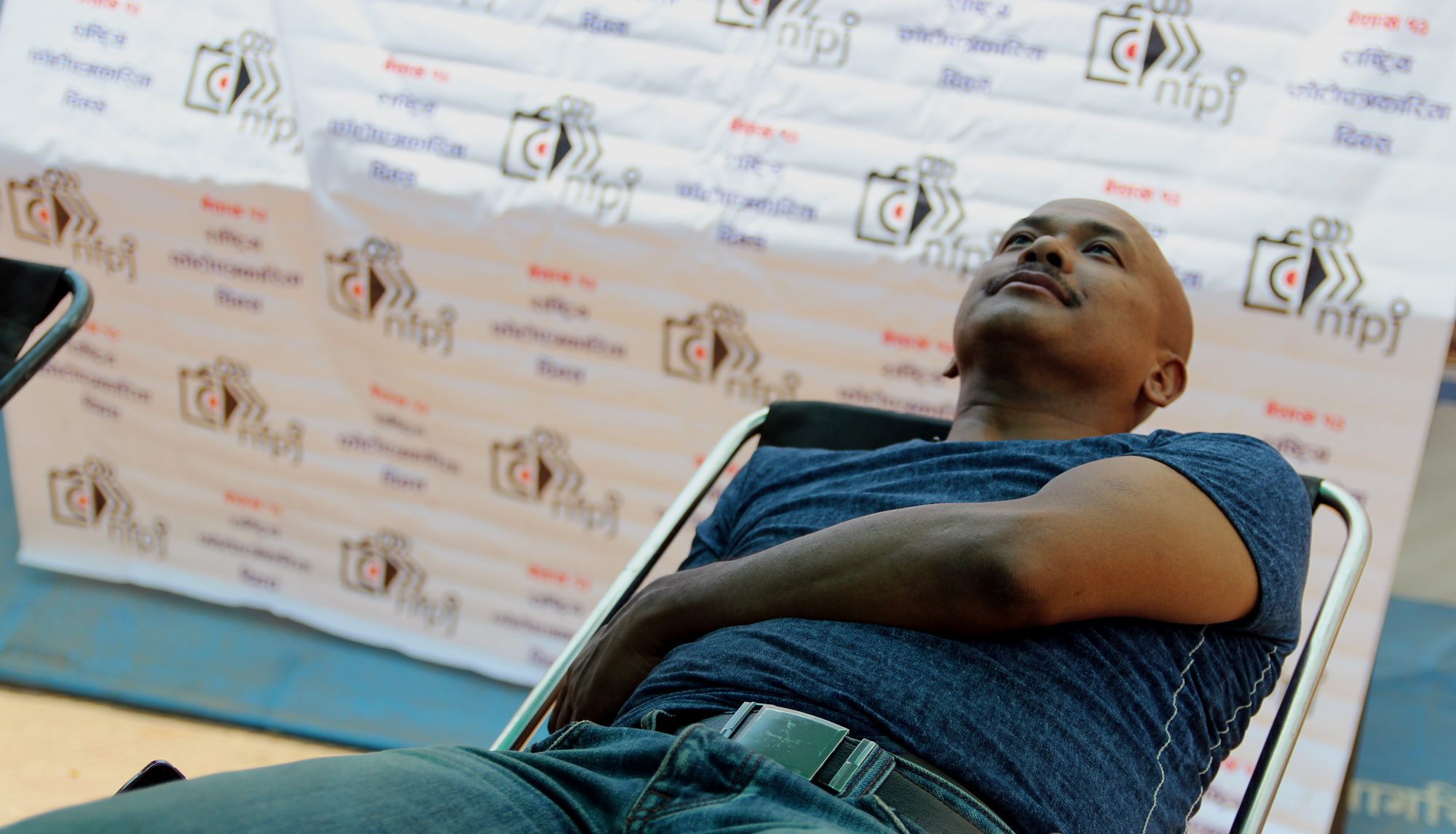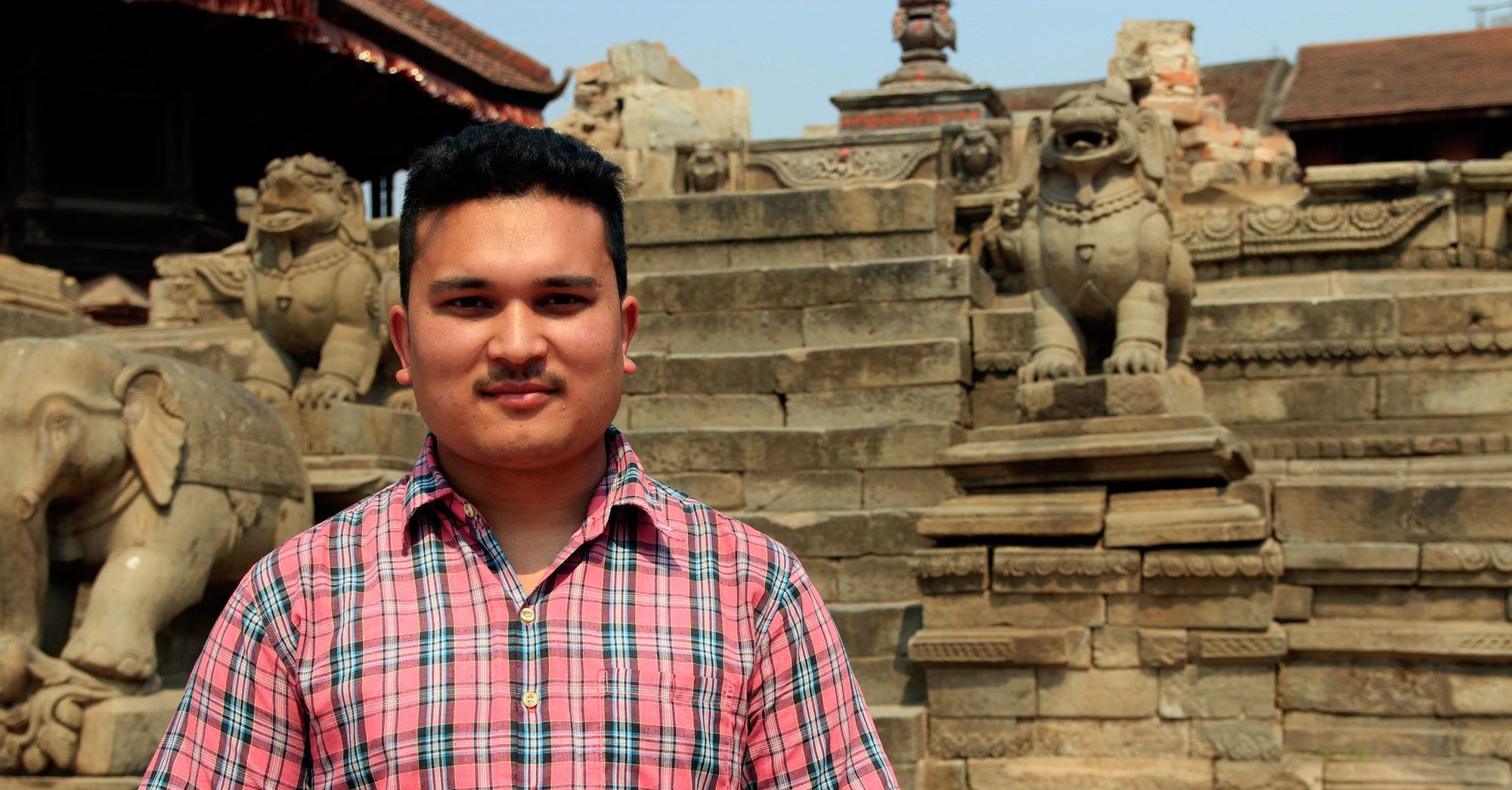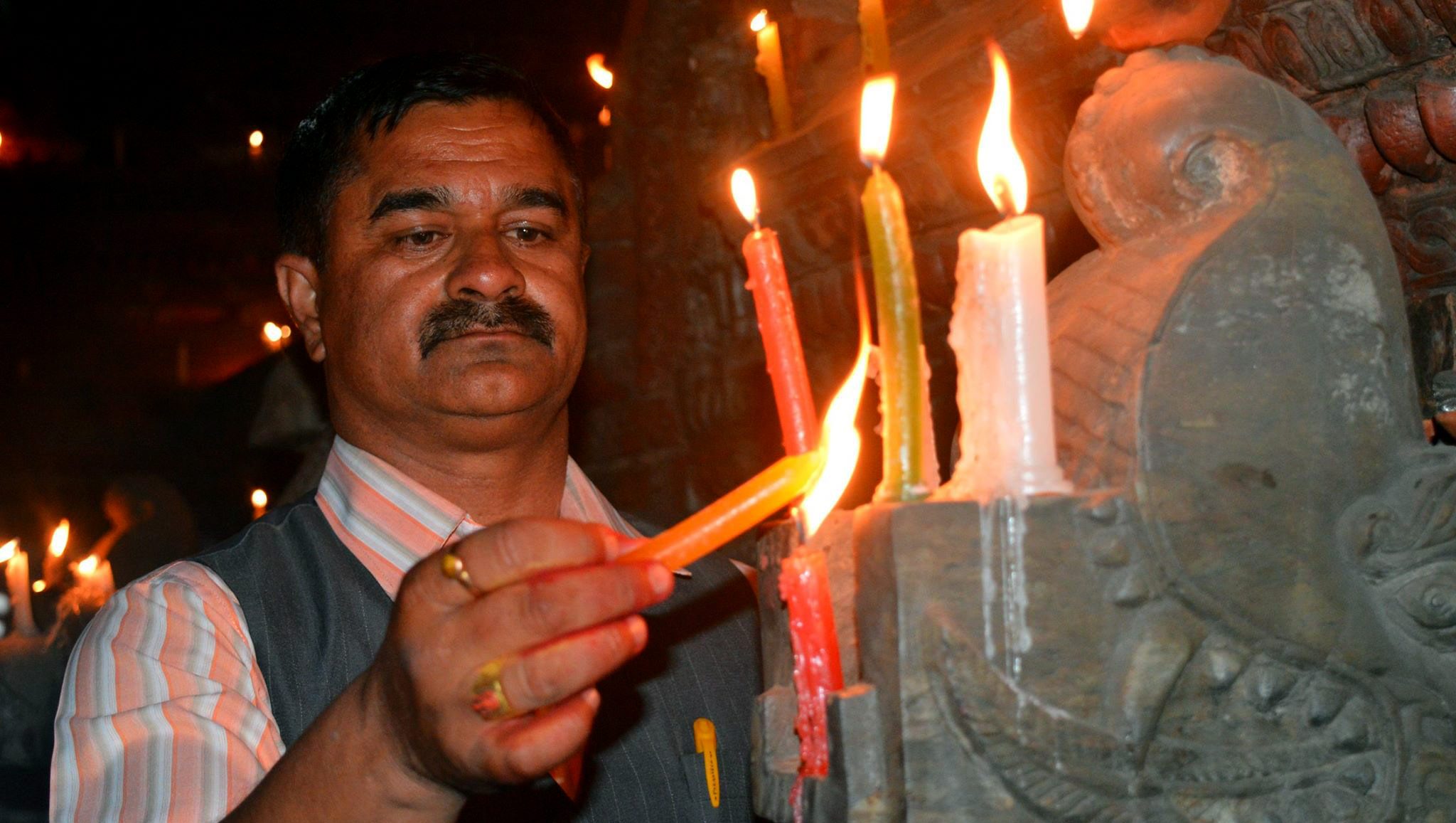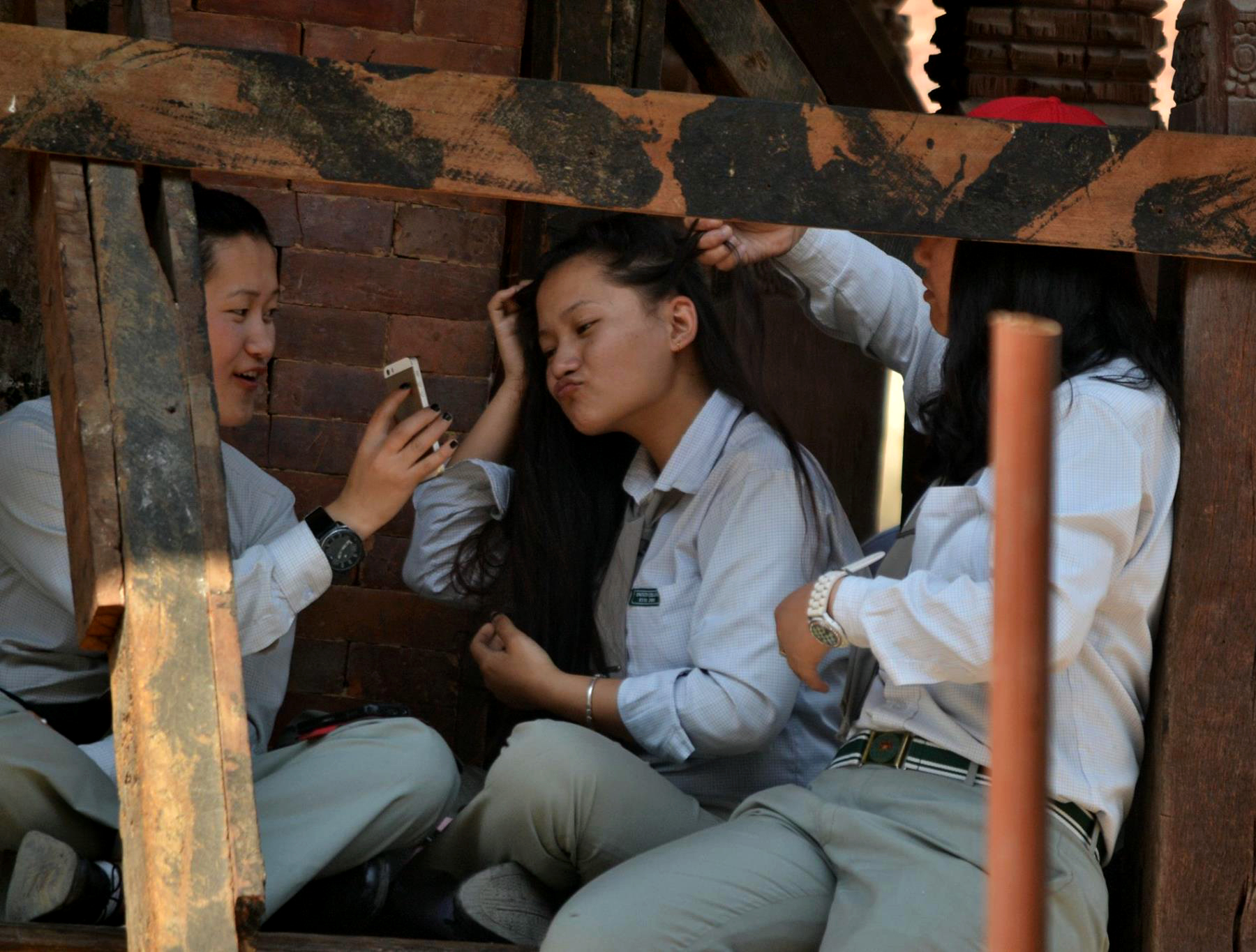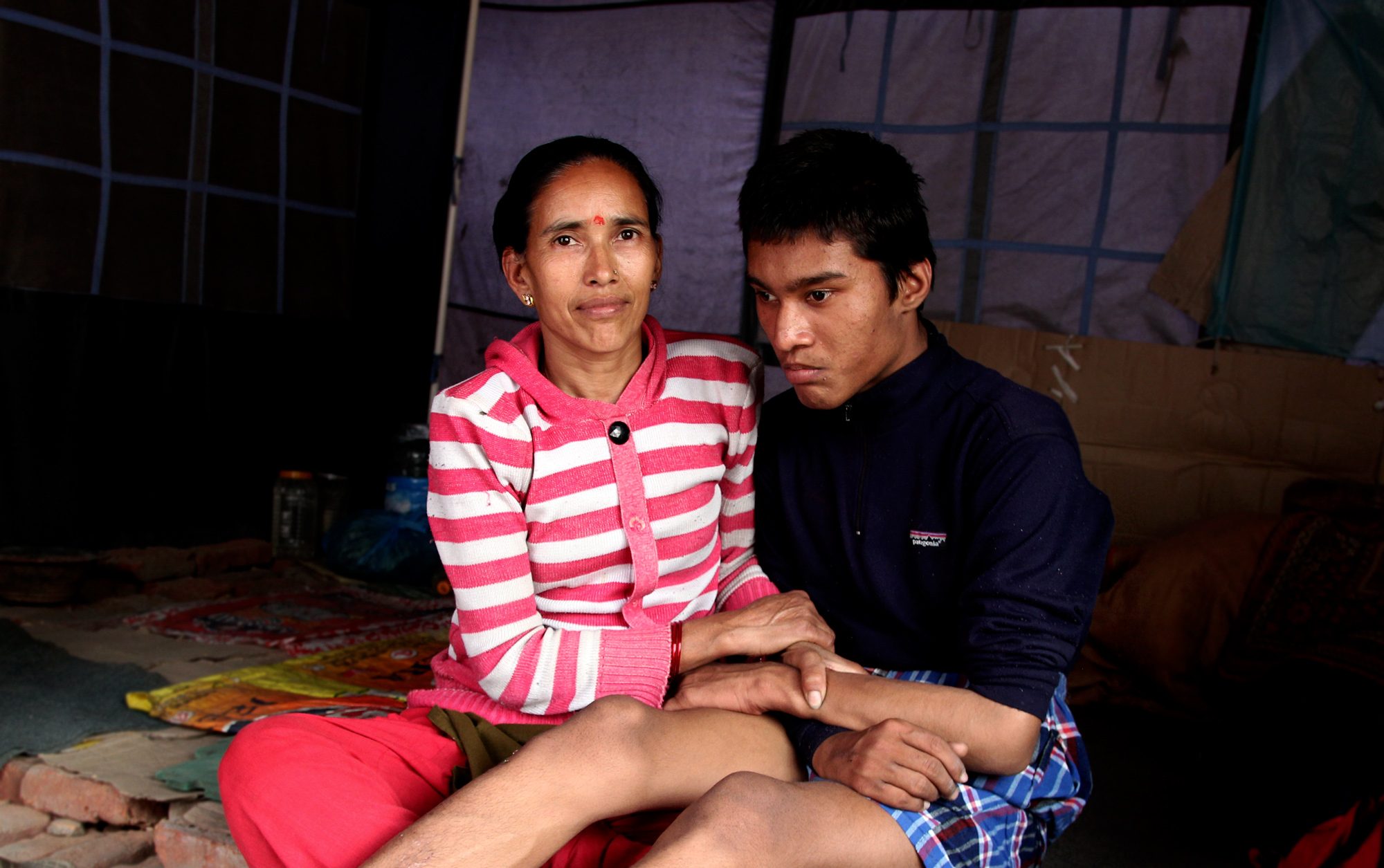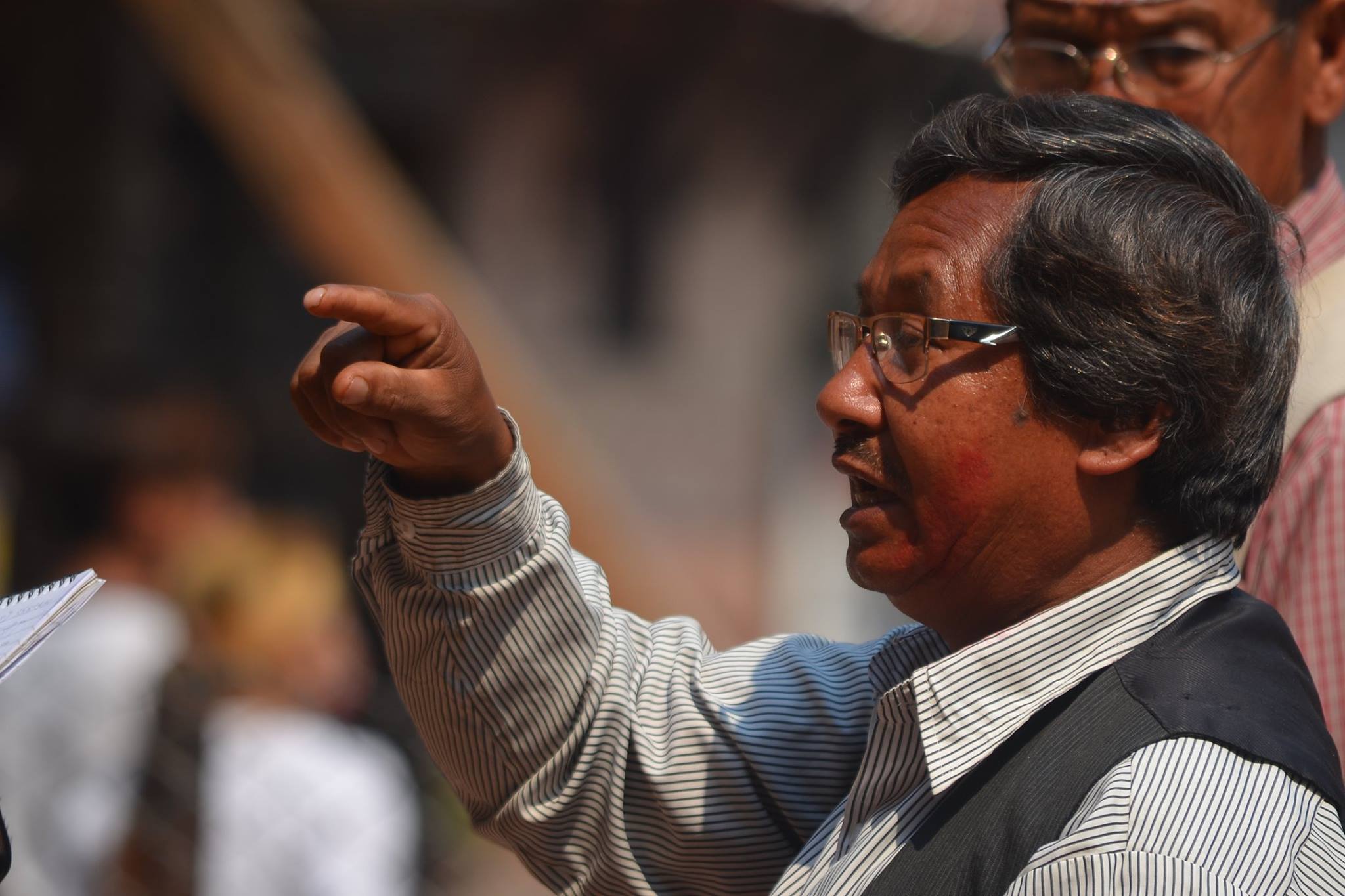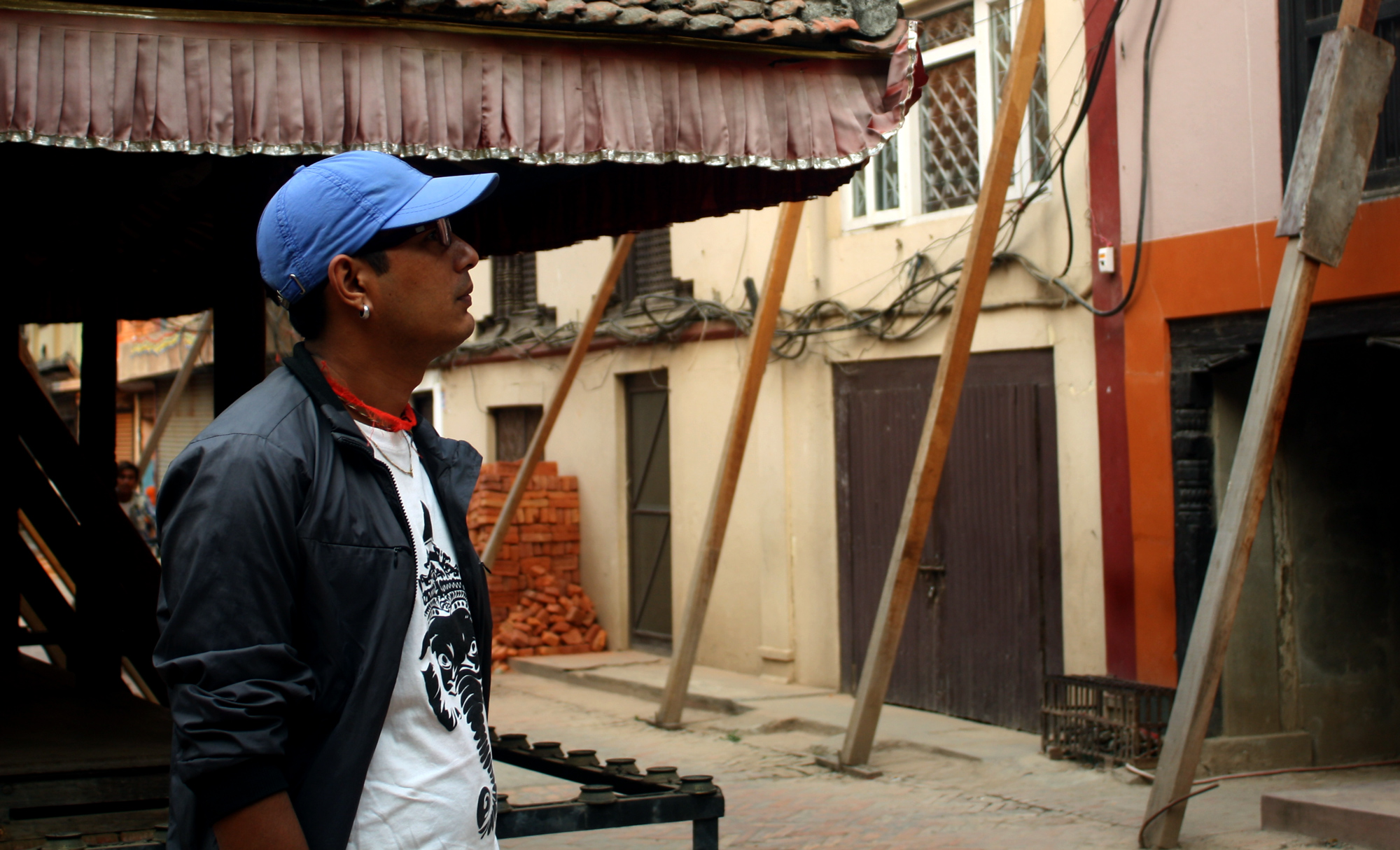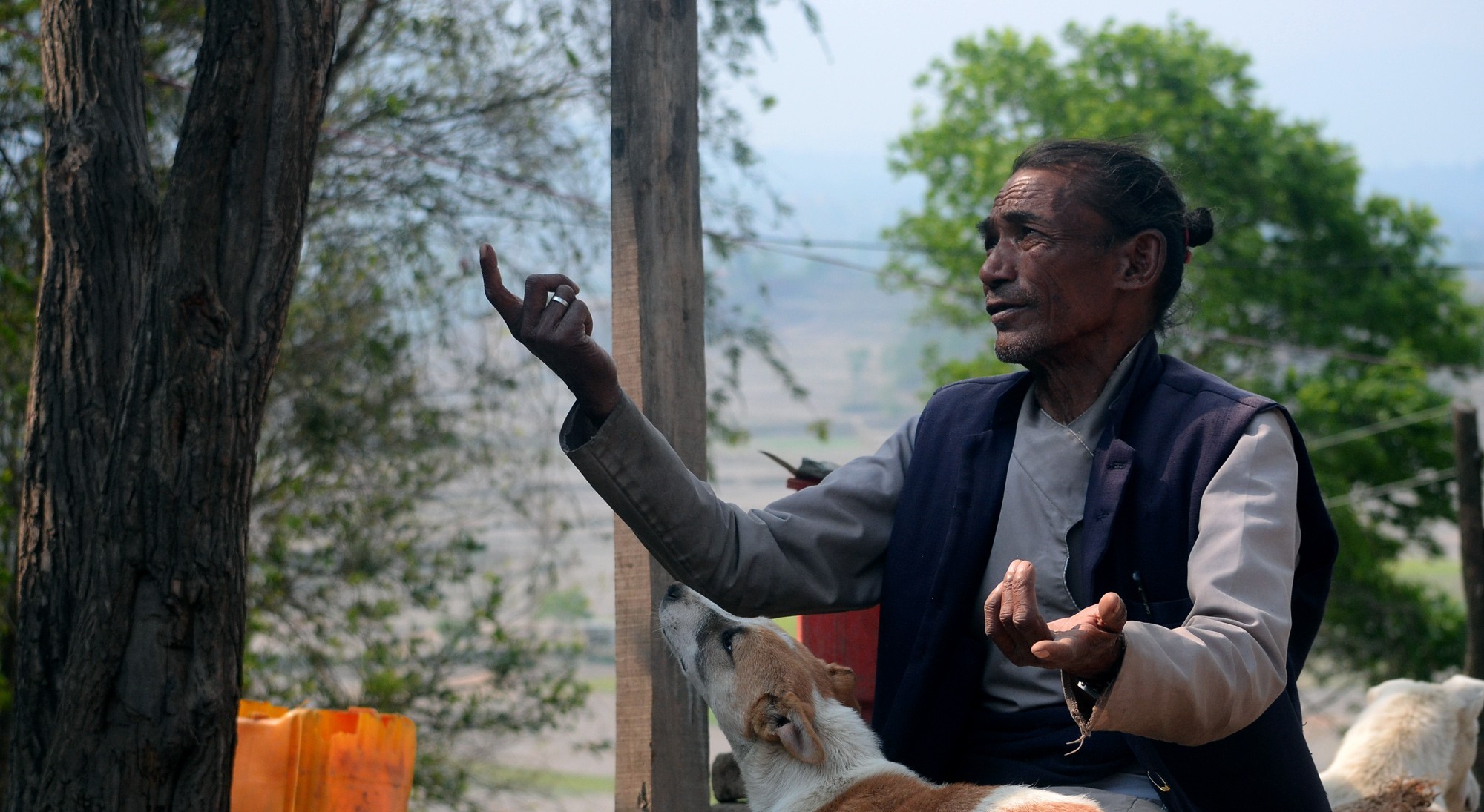“They wanted to kill my son because he is not normal. That is why I left my husband and his family in Ramechhap. That was 15 years ago. Since then I have been living here. I work as a maid so that I can rent a room and take care of my son.
“But then the earthquake came and now I live in this camp. It is very difficult. My son cannot control his voice and he is very loud. The others here get angry about him and complain. We are not part of the community here. I want to move, but nobody will rent me a room because of him. So I have to continue here.
“Every day I take my son to the school for disabled children. It is tough, because he cannot walk by himself. I put my arms around him so he does not fall. It’s even worse here in the camp because the paths are not straight. So every morning we stumble on the way together, and in the afternoon we stumble back.
“Whenever I can afford it, I prepare noodles for him. It’s what he loves most. It makes me happy to see him full of joy and relaxed. The doctors have given me some medicine, not to cure him, just to calm him. They have not told me the name of his disease. They just said my son will never be normal.
“But all the hardship does not matter. Because of all what happened during the earthquake I love my son even more than before. We all have lost so much, but I still have him.”
Photo: Sven Wolters

